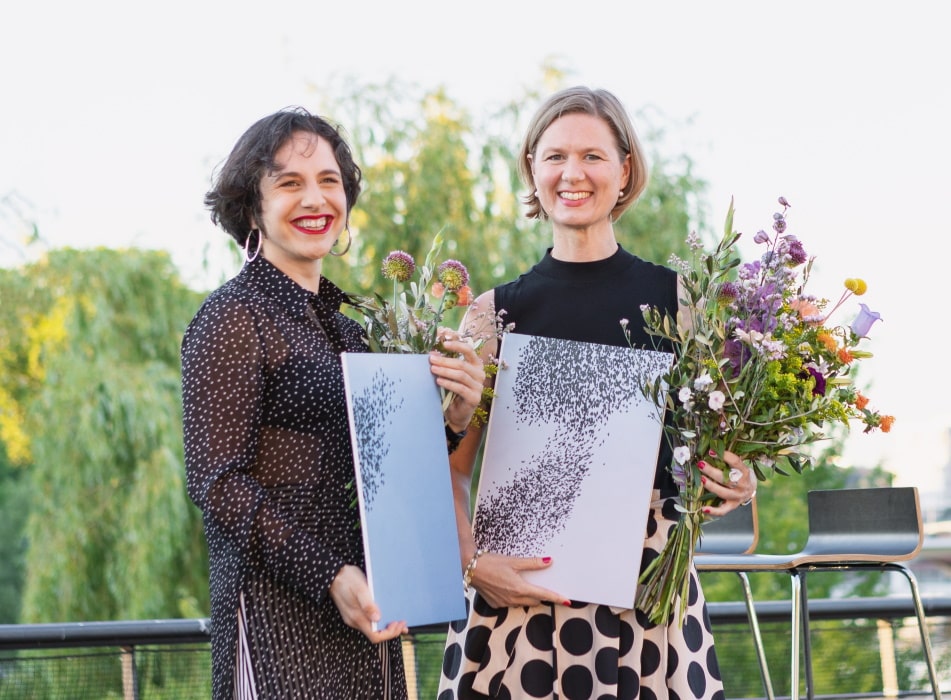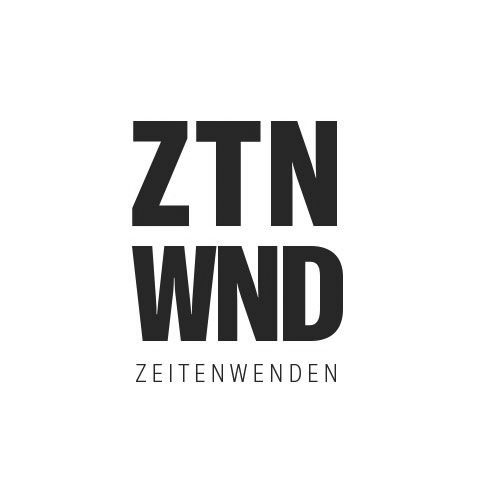The author Cristina Morales and the translator Friederike von Criegern will receive the 2022 Internationaler Literaturpreis (Prize for Contemporary Literature in Translation) for the novel Leichte Sprache (Matthes & Seitz, 2022).
Image above: Laureates 2022, the author Cristina Morales and the translator Friederike von Criegern receive the International Literature Award 2022 for the novel Leichte Sprache, Photo: Malte Seidel / HKW
For the fourteenth time, Haus der Kulturen der Welt (HKW) and Stiftung Elementarteilchen are awarding the Internationaler Literaturpreis for contemporary literature in its first German translation. Endowed with €20,000 for the author and €15,000 for the translator, the prize not only recognizes outstanding contemporary voices in international narrative literature, but also honors the alliance between author and translator. For their shortlist nomination, all other authors and translators will receive €1000 each.
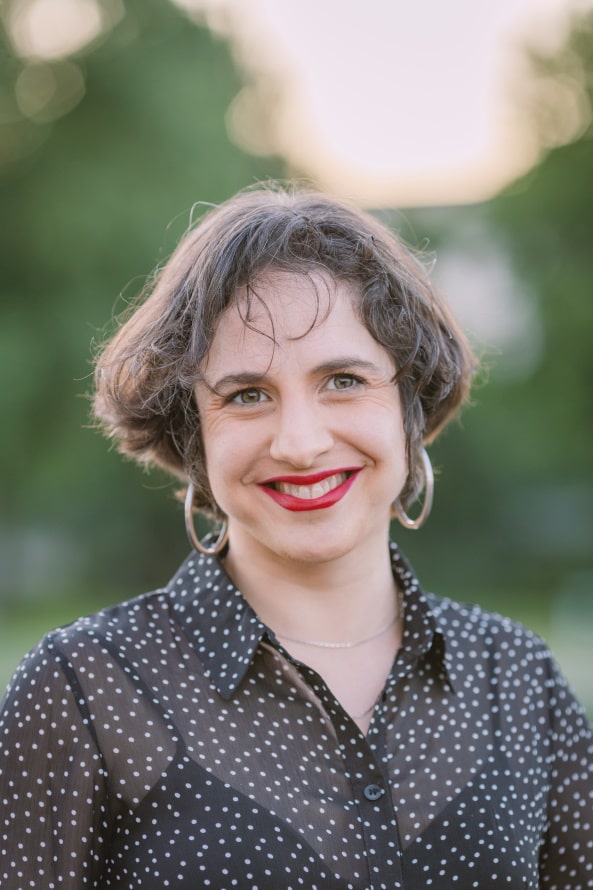
for the novel Leichte Sprache, Photo: Malte Seidel / HKW
This is a book of many voices, whose tone often shifts quickly. Role prose by characters about whom we know that linguistic power and elegance are not their goal, perhaps not even their ability, whose use of language is thus fragile from the outset. One can hardly imagine a greater challenge for a translator. The discipline with which Friederike von Criegern has taken on this task is prize-worthy. Cristina Morales’s book is a liberating blow because it demonstrates the strength that our fragility can produce, the toughness that is grounded in our experienced, witnessed or even anticipated violability. It presents us with a liberatingly altered view of the world, a radicality that has only become possible through the recognition of our own violability.
From the jury’s statement
This year, the jury members are Robin Detje, Heike Geißler, Michael Götting, Dominique Haensell, Verena Lueken, Annika Reich and Elisabeth Ruge.
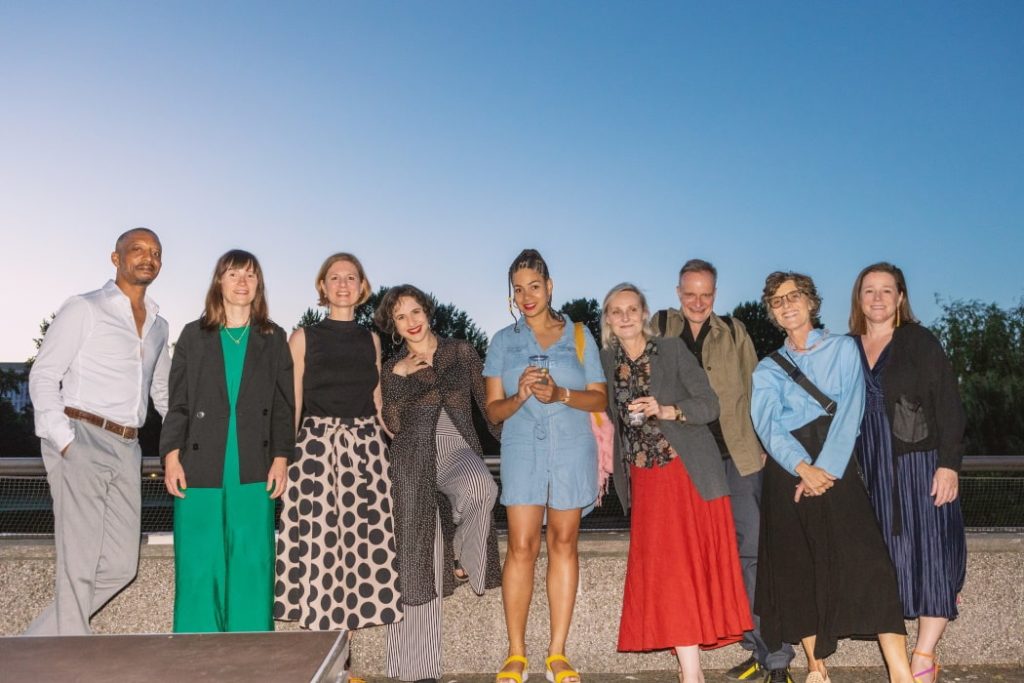
Photo: Malte Seidel / HKW
The award winners
Cristina Morales studied law and political science and works as a legal interpreter in Barcelona. She has written several award-winning novels and short stories and is considered one of the best young authors in Spain. Her novel Lectura fácil (Easy Reading) was awarded the Premio Herralde de Novela, and in 2019 she became the youngest author to win the Spanish Ministry of Culture’s Premio Nacional de Narrativa. Morales is a dancer and choreographer with the contemporary dance company Iniciativa Sexual Femenina.
Friederike von Criegern is a literary translator and freelance lecturer in literature and translation. She received her PhD on Chilean poetry and translates fiction, poetry and theater from Spanish, most recently by Jorge Comensal, Nona Fernández and Floridor Pérez. After living in Peru, Chile and Argentina, she now lives in Göttingen.
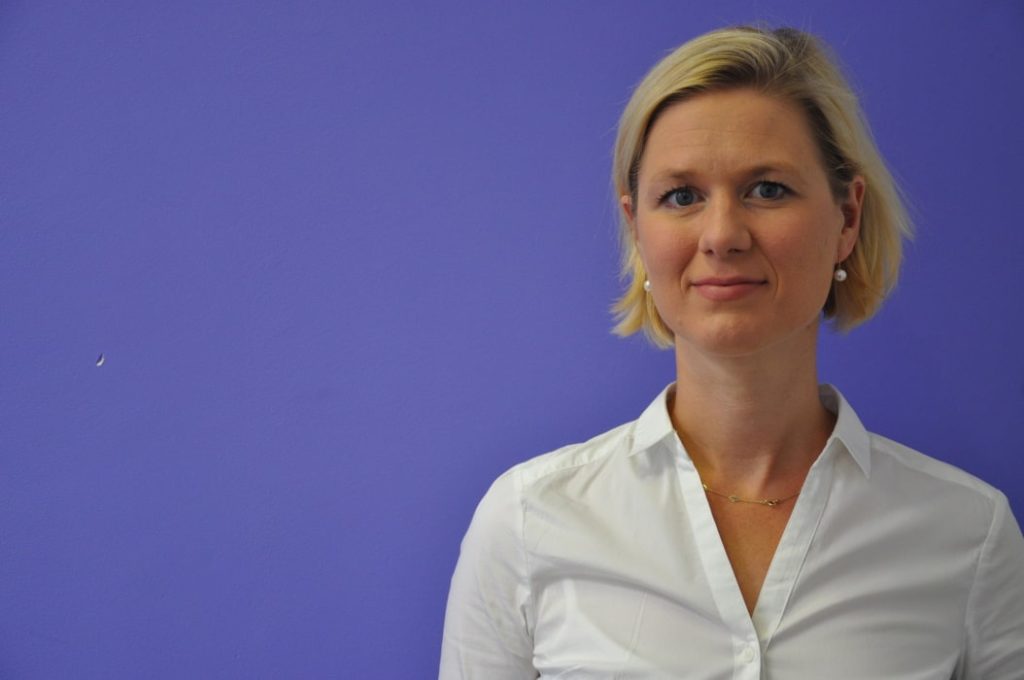
Leichte Sprache
Roman. Matthes & Seitz, 2022
409 pages, bound hardcover
Price: 25,00 €
Spanisch: Lectura fácil
Anagrama, 2018
Leichte Sprache (Easy Reading) tells the story of four women diagnosed with intellectual disabilities who live in an assisted-living apartment in gentrified Barcelona. Nati describes their symptoms as “sliding door syndrome”: Under pressure, their relationship to the environment changes. All four have learning difficulties. Marga is illiterate and overly sexually active, Àngels stutters, Patri has logorrhea. In integrative dance groups and in Barcelona’s squatter scene, the women try to free themselves from the control of state institutions and the judiciary and to lead self-determined lives. As astute as she is angry, the dancer Nati unmasks the ideology of a society functioning according to ideals of “neoliberal macho fascists,” her cousin Àngels discovers “easy language” as an instrument for participation and writes her life story on WhatsApp in astonishing poetry. Cristina Morales narrates the lives of these women in many voices, assembling court records, protocols of the anarchist Okupas and a fanzine into a great novel.
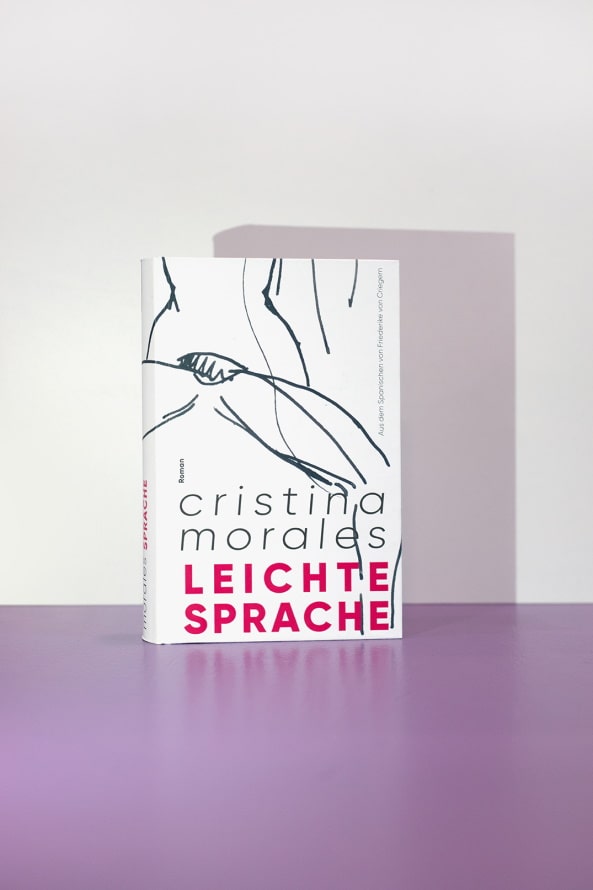
Partners
The Internationaler Literaturpreis is awarded by Haus der Kulturen der Welt and Stiftung Elementarteilchen (Hamburg).
Haus der Kulturen der Welt is supported by the Federal Government Commissioner for Culture and the Media and by the Federal Foreign Office.


